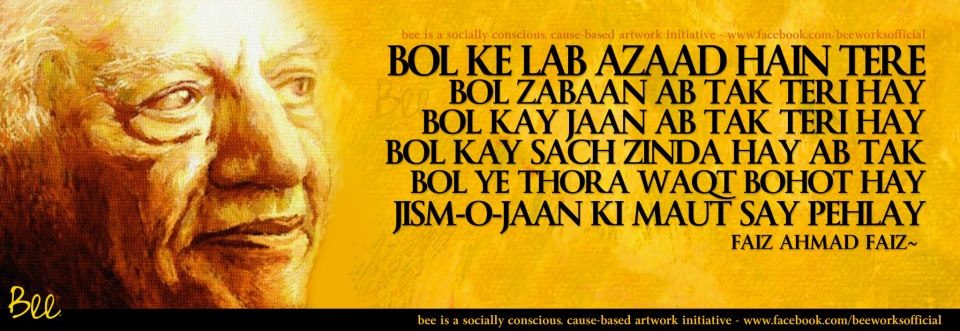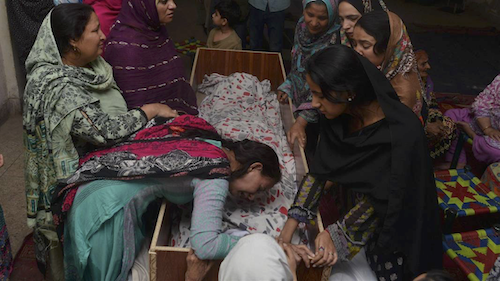The terrorist attack targeting Christians in Gulshan-e-Iqbal Park in Lahore, Pakistan by the Jamaat-ul-Ahrar, an offshoot of the Tehreek-e-Taliban on Sunday March 27, killed about 70 innocent children, women and men and injured hundreds of others.
This is the latest incidence of fundamentalist hatred, and violence against religious minorities that started with attacks against Hindus in 1948 and Ahmedis in 1953 and became especially widespread after the dictator Gen. Zia seized power in 1977 and brought in strict Islamic laws.
Fundamentalism grew stronger when the US and many western governments, along with Pakistan and the Saudi and Gulf monarchies, helped strengthen the so-called mujahideen cause, in material ways and ideologically, to fight against the communist revolution in Afghanistan of April 1978.
The mujahideen took over Afghanistan in 1992 but were ousted by the Taliban in 1996 whose government was officially recognized by only three countries: Pakistan, Saudi Arabia and the United Arab Emirates.
From around the beginning of this century many fundamentalist organizations calling for the establishment of a ‘caliphate’ style of rule of 1,500 years ago based on sharia law, and with extremely discriminatory and violent views against religious minorities, such as the Tehrik-e-Taliban, Lashkar-e-Jhangvi, Al-Qaida, Jaish-e-Mohammad, Lashkar-e-Taeba have taken root in Pakistan.
Powerful elements in Pakistan’s security, army, civil service and political establishment have helped these groups grow to foment trouble in Afghanistan and India, and to divide people along sectarian lines to divert their attention from the real issues of underdevelopment and injustice facing them, and by the Saudi and Gulf kingdoms to spread their virulent form of religion.
Thousands of Shias, Ahmedis, Christians, Ismailis, Hindus and even members of some Sunni sects have been killed or injured by religious fanatics and their places of worship and property destroyed while Pakistan’s relations with its neighbours remain constantly strained.
What leads members of one religion to murder people of another? Simply put: their beliefs are pure and right, those who hold other beliefs are ‘wrong’ and ‘impure’ and their elimination is justified.
What can be done to change this state of affairs?
All activities of extremist groups and their social and charitable organizations must be strictly banned and their leaders and activists given exemplary punishments. The campaign against foreign and local terrorist organizations by the army is a start; the hanging of Mumtaz Qadri who murdered Salman Taseer, the governor of the Punjab, in 2011 for ‘blasphemy’ is to be welcomed.
Any official of the army, the internal security agencies, the civil service or politician or civilian who has aided and abetted these terrorist groups or organizations related to them, must be exposed and severely punished.
Over the past three to four decades, Saudi Arabia has provided an estimated $100 billion to right-wing religious, political and educational institutions worldwide. All such funding must be stopped from entering Pakistan, and Canada for that matter, immediately and completely.
Pakistan’s 2016 budget allocates 781 billion rupees – 19% of the budget – to defence (more, if hidden aspects are taken into account), 71 billion on public education and only 20 billion on health. A big chunk goes to pay Pakistan’s foreign debt. The country should free itself of the dictates of the west and its lending agencies and significantly increase educational and employment opportunities so people don’t have to rely on madrassas for education and religious organizations for basic needs. Pakistan, India and Afghanistan need to have peaceful and mutually beneficial relations so that the huge sums presently spent on armies and armaments can be spent on providing roti, kapra aur makan (food, clothing and shelter) among other necessities to their peoples.
Canada’s defence spending, $14 billion in 2006 is now $20 billion. From 2001 to 2014 the Canadian government spent $18 billion in Afghanistan. Since 2011 it has provided $700 million to anti-government forces in Syria – with the U.S., Saudi Arabia, the Gulf monarchies and Turkey providing billions more resulting in tremendous destruction, dislocation and suffering in Syria. Canada must end taking part in wars against other countries and oppose Israel’s unjust treatment of the Palestinian people. It must significantly reduce its defence budget while increasing expenses on social needs such as childcare and education, healthcare and pensions etc.
Last, but not least, Pakistan must become a secular state. As Mr. Jinnah the founder of Pakistan stated to the Constituent Assembly on August 11, 1947:
‘Everyone of you, no matter to what community he belongs … no matter what his colour, caste or creed, is first, second and last a citizen of this state with equal rights, privileges, and obligations.
You are free; you are free to go to your temples, you are free to go to your mosques or to any other place or worship in this state of Pakistan. You may belong to any religion or caste or creed; that has nothing to do with the business of the state.’
State and religion should be separate; the results of the mixing them in Saudi Arabia, Iran, Afghanistan and Pakistan confirms this view. In 1956, Pakistan became the Islamic Republic of Pakistan. It should be renamed the People’s Republic of Pakistan – and aspire to become one. People should be free to believe and practice any religion they choose so long as it is not harmful to society or others. There should also be the freedom not to believe in religion. All discriminatory laws against religious minorities – and the one made Ahmadis non-Muslims – must be rescinded. The practice of registering the religion of citizens on passports must be done away with. Everyone, unequivocally, must be a completely equal citizen.
Committee of Progressive Pakistani-Canadians
April 5, 2016
Please send your comments and criticisms to info@pakistanicanadians.ca

